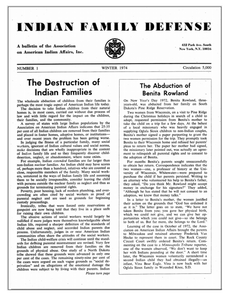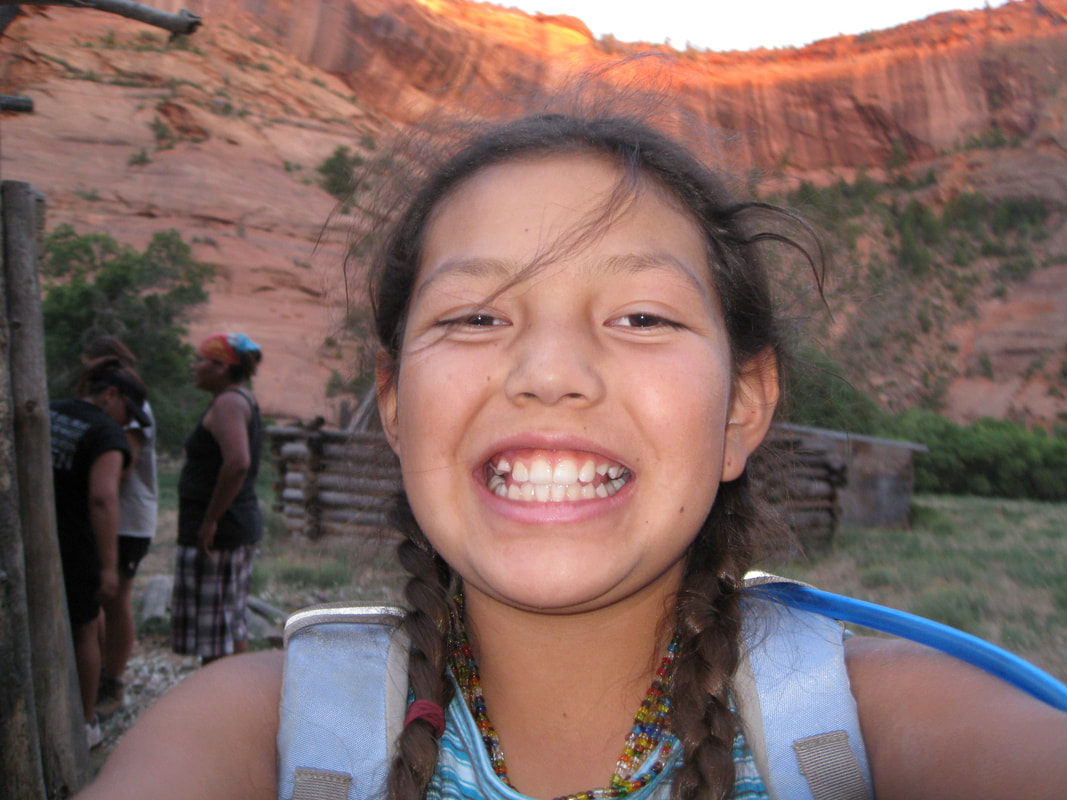Since the passage of the Indian Child Welfare Act (ICWA), the Association has continued to work to ensure appropriate implementation of ICWA through litigation, advocacy and training.
What is ICWA?ICWA provides procedures for identifying an Indian child early on and involving the child’s extended family and Native Nation in the process to ensure that everything has been done to keep the Indian family whole, and cultural connections intact.
ICWA requires that: the state must look into the enrollment status of a Native child, provide Tribes and parents notice in child welfare proceedings, and ensure that Tribes are given the opportunity to intervene in the proceedings or transfer jurisdiction to the Tribal court. The party removing a child or terminating parental rights must provide active efforts to prevent the breakup of an Indian family and present testimony of a qualified expert witness supporting such a decision before placing an Indian child in foster care or terminating the parental rights over an Indian child. Such procedures seem reasonable for any child custody proceeding to ensure that the child is not removed from family and extended family without first trying to prevent the breakup of that family. And, these procedures are considered the “gold standard” in child welfare. ICWA does not prevent adoption of an Indian child to a non-Indian family. |
Studies have shown that Indian children adopted to non-Indian families fair worse psychologically than white peers. Suicide rates, depression and alcoholism are higher in American Indian adoptees than in other groups. Involving the Tribal Nation in the placement or adoption is crucial to provide culturally appropriate services to support the Indian child and family.
|

The Protect ICWA Campaign was established by the National Indian Child Welfare Association, the National Congress of American Indians, the Association on American Indian Affairs, and the Native American Rights Fund.
History of ICWA
|
The Association began its advocacy in Indian child welfare issues in 1967 and its research and advocacy directly led to the enactment of the Indian Child Welfare Act of 1978. Prior to the Act, the integrity of the Indian family was being devastated by state and locally sanctioned child welfare and adoption agencies who were removing Indian children from their families at an alarming and disproportionate rate.
The Association completed two studies in 1969 and 1974 exposing that 25 to 35 percent of all Indian children had been separated from their families and placed in foster homes, adoptive homes or institutions, and 90 percent of those placements were in non-Indian homes. [See H.R. Rep. No. 95-1386, p. 9 (1978)]. ICWA was created in response to these statistics and related testimony heard by Congress. It was designed to direct and guide certain decision-making activities that occur during Indian child custody proceedings in a state court in order to protect the relationship between the Indian child and Indian family, and preserve a tribe’s effective exercise of its pre-existing inherent tribal authority. 
The Association's Indian Family Defense Project worked to bring stolen children home, one child at a time. The stories that led to ICWA's passage and supported its implementation can be found in the Indian Family Defense bulletin. |
Case Work
Our activities have included participation in the Adoptive Couple v. Baby Girl and Mississippi Band of Choctaw Indians v. Holyfield United States Supreme Court cases, working to develop tribal-state agreements and state legislation in a number of states, including Washington State, and contributing to the ICWA guidebook published by the Native American Rights Fund.
Below are helpful documents regarding the ICWA case, Adoptive Couple v. Baby Girl:
Below are helpful documents regarding the ICWA case, Adoptive Couple v. Baby Girl:
- The Association's Amicus Brief for the case of Adoptive Couple v. Baby Girl
- The Association's Case Analysis in Adoptive Couple v. Baby Girl
- Understanding the Supreme Court's Decision in Adoptive Couple v. Baby Girl
- The Continued Protection of Indian Children and Families after Adoptive Couple v. Baby Girl
- Authority of the Fed. Government to Oversee and Enforce the Implementation of ICWA










